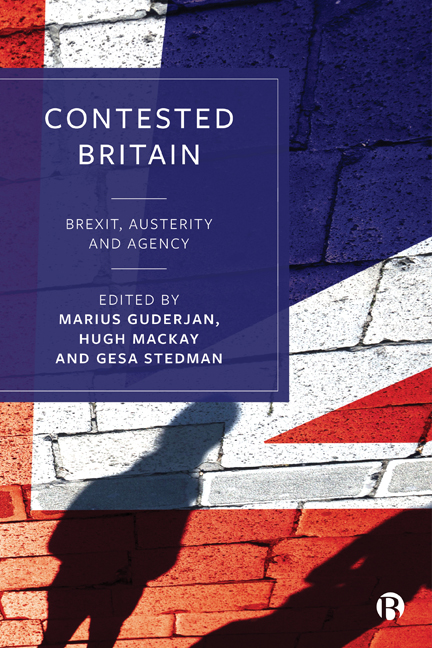3 - Political Activism and Agency under Austerity and Brexit
Published online by Cambridge University Press: 10 March 2021
Summary
Introduction
The global financial crisis of 2008 and the austerity measures which followed have formed the backdrop in recent years for a reconfiguration of the political environment across Europe. This reconfiguration has been underpinned by a recognition of the polarization in society that has exposed the asymmetries of income, wealth and power in the UK. Exposed to the crisis, the UK government at the time decided to respond with an austerity agenda. Subsequently, the decision to leave the EU in 2016 has served as a crucial example for understanding the dynamics that are continuing to disrupt the political order across the globe.
This chapter looks at agency through the prism of collective action and in doing so it seeks to understand the characteristics of citizens who express their agency through membership of activist groups that are explicitly opposed to: a capitalist economy in general; public budget cuts; and groups seeking to protect the rights of women, a section of society that has been particularly exposed to the consequences of austerity policies. The chapter also looks at attitudes to the EU among members of such groups, given the argument that the vote to leave may have been an alternative expression of agency for some in the UK. This chapter therefore takes the following structure: firstly, it defines austerity; secondly, it explores how austerity has been operationalized in the UK and how austerity policies have had an uneven impact on different groups and geographies; thirdly, it builds upon the UK context and explores various expressions of agency by different groups as well as attitudes to the EU.
Understanding the contours of Austerity Britain
The word austerity has become part of the lexicon for understanding the social and political context that has shaped much of contemporary Europe following the global financial crisis of 2008 and continues to form the background to political manifestations, from movements to governments, which are reconfiguring the political landscape. However, despite its proliferation, the term austerity is often deployed without definition. This chapter relies upon the historical analysis undertaken by Blyth (2013) of the development of austerity as a ‘dangerous idea’ that has been fundamental for policymakers in some contexts to repackage a banking crisis as a crisis in public spending.
- Type
- Chapter
- Information
- Contested BritainBrexit, Austerity and Agency, pp. 45 - 58Publisher: Bristol University PressPrint publication year: 2020

